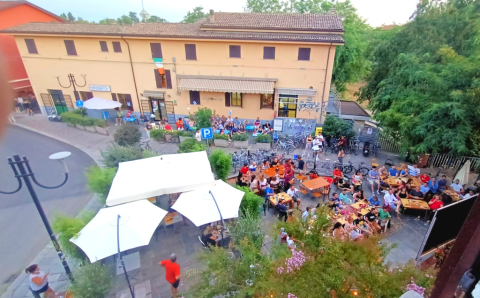
Neighbourhood Houses and Community Managers

About this good practice
"Case di Quartiere" (Neighbourhood houses) is a project promoted by the Municipality of Reggio Emilia as part of the city's collaborative effort to promote active participation and social inclusion within neighbourhoods in urban and peri-urban areas. The initiative transformed 27 local social centres into “Neighbourhood Houses”, intended as decentralised places capable of listening to the needs of the community and engaging citizens in the co-design of new services and opportunities to enforce sociality and conviviality, addressing the complexity of multi-locality. Local strategies are developed to attract new users and improve competencies in terms of financial sustainability.
In 2023, the local authority launched a pilot acceleration project aimed at expanding the governance and accompanying six neighbourhood houses in the co-design and delivering of a proximity service based on local needs.
Significant in this context is the role of the ‘welfare community manager’, who acts as a link with the Municipality and facilitates urban social activities, intending to enhance a strong sense of community working on micro-scale proximity services and exchanges within the neighbourhood. The community manager supports proximity policies through the acquisition of specialised skills such as the identification of needs, the elaboration of hypotheses for the sustainability of projects and services, the creation of proximity networks, etc.
Expert opinion
Resources needed
Two staff members (50% of their time dedicated) and consultants activated specifically on coaching and the accompaniment of the first 6 Neighbourhood Houses.
Evidence of success
After the end of the co-design process addressed to Third Sector organisations, there are 27 Neighbourhood Houses operating in Reggio Emilia with new projects and neighbourhood services which proved successful in creating identity and sense of belonging.
Training of 9 “community managers”, with the plan to increase their number. With this participation pathway, specific living labs with communities to co-design services/activities tailored to needs and able to involve users.
Potential for learning or transfer
From the experience of the pilot case study of Reggio Emilia, the research comes out with three sets of findings. First, this study grasps knowledge of how the urban transformation of cities can be shaped by a multi-local approach applied at the neighbourhood scale. Second, it attempts to define the role and value of a new actor that bridges the gap between top-down and bottom-up approaches. Third, it contributes to the argument that theories of multi-locality can be applied to proximity features in a co-governance model.
Even though the neighbourhood houses currently constitute a mix of voluntary work and social cooperation strictly connected with the unique characteristics of the ecosystem and social fabric of Reggio Emilia, social entrepreneurial activities could eventually be grafted onto these spaces, a perspective that makes them a replicable model in other contexts.



